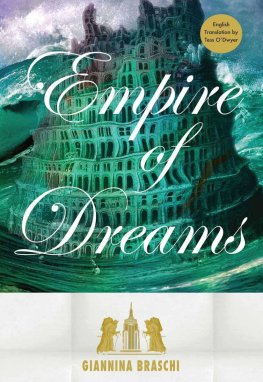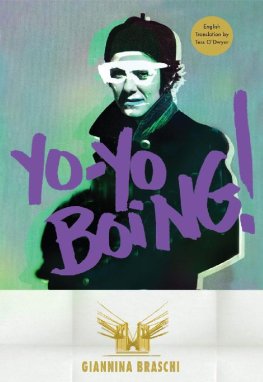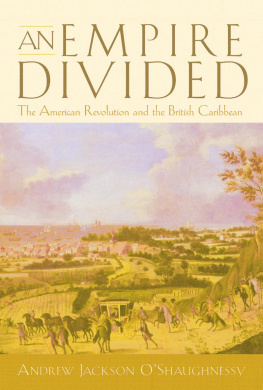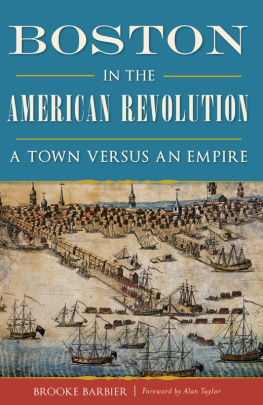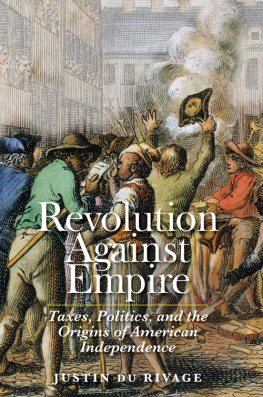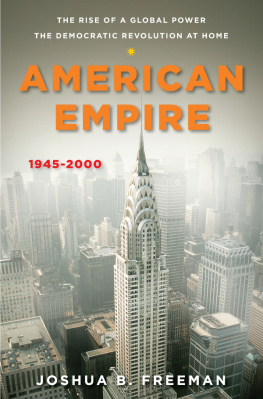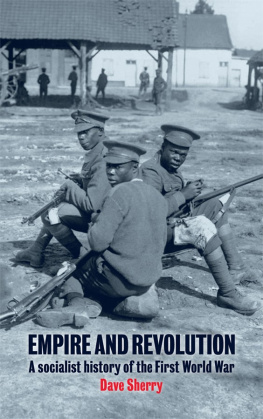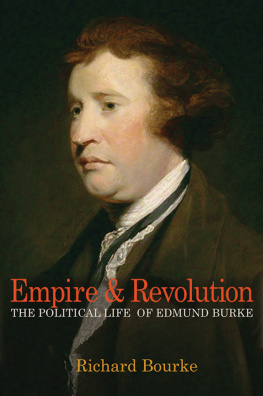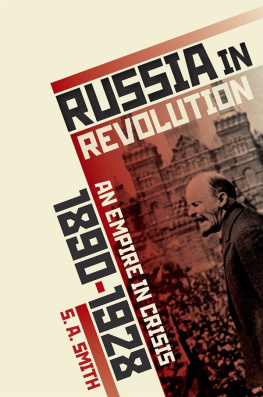Giannina of Braschi
Empire of Dreams
The only way to know precisely what an author means is to become the author. The translator becomes the author the way an actor becomes the character. Memorizing the lines in Spanish and reciting the words as if they were my own, I traded in my voice for the dramatic voices of the lyric I whose adventures and emotional states vary from book to book in Empire of Dreams. Swapping names, ages, nationalities, and genders, Giannina Braschis characters are a cast of actors playing the roles of other characters. As a translator, I tried out for every part.
In Book of Clowns and Buffoons, I played the fortune-teller who predicted the past, the magician who torched his audience, the drunkard who cried in a room full of bottles, and the little lead soldier who marched against the smoke of the city. In Pastoral; or, The Inquisition of Memories, I was Shepherd Giannina, who led a revolution in New York City. It was chaos. Cows and sheep were grazing the sidewalks as shepherds took over St. Patricks Cathedral and the Empire State Building. I nearly lost my voice screaming through a loudspeaker, Now we do whatever we please. Whatever we please. Whatever we damn well please! The roles grew more complex as I made my way through The Intimate Diary of Solitude. There I played the writer Giannina Braschi, who played the writer Mariquita Samper, who played the writer Berta Singerman and an array of other characters. With red-dyed hair, surgically implanted freckles, and a gold tooth, I especially enjoyed the role of the fairy drag queen. But the most gratifying moment was when I shot the Narrator of the Latin American Boom, who kept rewriting my diary. He was such a nuisance. Always telling me what to think, what to do, what to write! Once he was out of the way, my thoughts flowed freely onto the pages. By the end of Empire of Dreams, I had lived so many lives that I no longer felt I was a character. I was all of them and, therefore, the author herself. I fancied myself annoyed that Giannina Braschi had translated Empire of Dreams into Spanish before I had the opportunity to write it in English. I thought of all my transformations. Were they in vain? I became the actor who became the character who became the author. Now what was I to become? The translator. And how was I to do it? With the respect that great literature deserves: faithfully.
Translating as close to the literal edge as the flow of the prose allowed, whenever possible I used word-for-word replacements, which rolled into rhythms of their own, inciting brilliant images and luscious sounds. More often than not, however, the poems demanded thought-to-thought correspondences, as the Spanish is proverbial and idiomatic. Because each poem builds on another, as does each book, word choice depended on a context larger than individual poems (especially when translating recurring images and phrases). As for the transliteration of Gianninas non-words, it was simply a matter of ear. For instance, the wheel of fortune in Song of Nothingness was chis-chassing when it should have been click-clacking.
Likewise, horns were cras-crassing when they should have been bee-bopping, while dogs were buff-buffing, and they should have been wuff-wuffing. Witnessing my symbiotic relationship to her text, Giannina invited me to edit the Spanish manuscripts, which she believed she had overcorrected. We collaborated. She reviewed drafts of the translation to encourage musicality and intensity, and I reviewed drafts of the originals to rid the poems of self-censuring. Together we reinstated lines and poems and rearranged the sequence of the Spanish edition. We widened the circumference of inclusion in this translation. It contains poems that have not been published elsewhere. For the most part, our collaboration was harmonious; that is not to say that there was no contention over interpretation. Sometimes an egg is an egg is an egg. Other times, an egg is a ball is a day. I could not always distinguish one egg from another. She, of course, always could. At a poetry reading years ago, we read a selection from Poems of the World which included a mutual favorite beginning with the line Eggs are months and days too I had always enjoyed its affirmation of plurality, its false logic, and its musicality. The eggs were so clearly a female symbol of creation that the slang connotation of huevos (testicles/balls) did not occur to me. When Giannina read her Huevos, the audience broke into laughter and applause in the middle of the reading. A woman next to me shook her head in disapproval, muttering, !Qu sucio! (Smut!) If I were not so curious, I would have skipped the poem to save myself some embarrassment. Instead, I read with all the confidence I could feign. Afterwards, the woman who had muttered, !Qu sucio! thanked me, saying, Yours was sweeter. Failure confirmed. Humiliated, I blamed Giannina: Why did you let me lay eggs when they were supposed to be balls? You should have told me huevos means balls. Annoyed, she replied, Do you mean that your eggs doesnt mean my balls? Then, in the heat of the moment, she taught me a few more slang expressions. Poner un huevo literally means to lay an egg. Figuratively it means to make a mistake. Rendering an idiom literally is just as fatal an egg as taking one too many liberties. I believe I have acted responsibly with my translators and poetic licenses, which have allowed me to save what must always be saved across language boundaries, sometimes at the expense of abandoning slang and puns: the spirit of the poetry, its rhythm and run. Not only does a translation have to sound like the original, it must be an original. That I learned from Jos Vzquez-Amaral, who introduced me to this work.
I met Amaral in the autumn of 1985 when he was professor emeritus at Rutgers University and I was an undergraduate student. He was from the Spanish Department, and I was from the English Department. Aside from the New Brunswick campus, our common ground was a love for modernism. Amaral had introduced Ezra Pound to the Spanish-speaking world with his translations, Cantares completos (ICXX) and El arte de la poesa. I visited the retired man of letters expecting to spend the afternoon hearing stories about Pound and Joyce. What I heard was this: Ive struck another world treasure. Amaral said this as he handed me several spiral notebooks and a stack of pages torn from yellow legal pads. After twenty-two years of [translating] The Cantos, I thought I had fulfilled my aspirations. Then I read this. He pointed to those yellow pages. The handwriting was like none I had ever seen. So angular, so determined. Hieroglyphics, I thought. Pound and Eliot brought us the twentieth century. This poet carries us into the twenty-first century, Amaral told me. Who is he? I asked. He smiled. Giannina. Giannina Braschi. Amaral had drafted an English version of Empire of Dreams and asked me to join him in revising it. He was confident that some poems took off and soared in draft one, while the rest were grounded, flapping, frustrated. There were plenty of obstacles to overcome. As the original was a work in progress, nearly half of his drafts did not correspond to the final manuscript. Most of what did correspond were inspiring sketches of his ideas to come. In 1986, when his health was failing, he bestowed upon me Gianninas yellow pages and his spiral notebooks. Take over, he told me. Let Giannina scream, and kick, and punch, and cry. Let her laugh. She is always laughing. And know that she thinks. She is always thinking.
And take upons the mystery of things, As if we were Gods spies.

